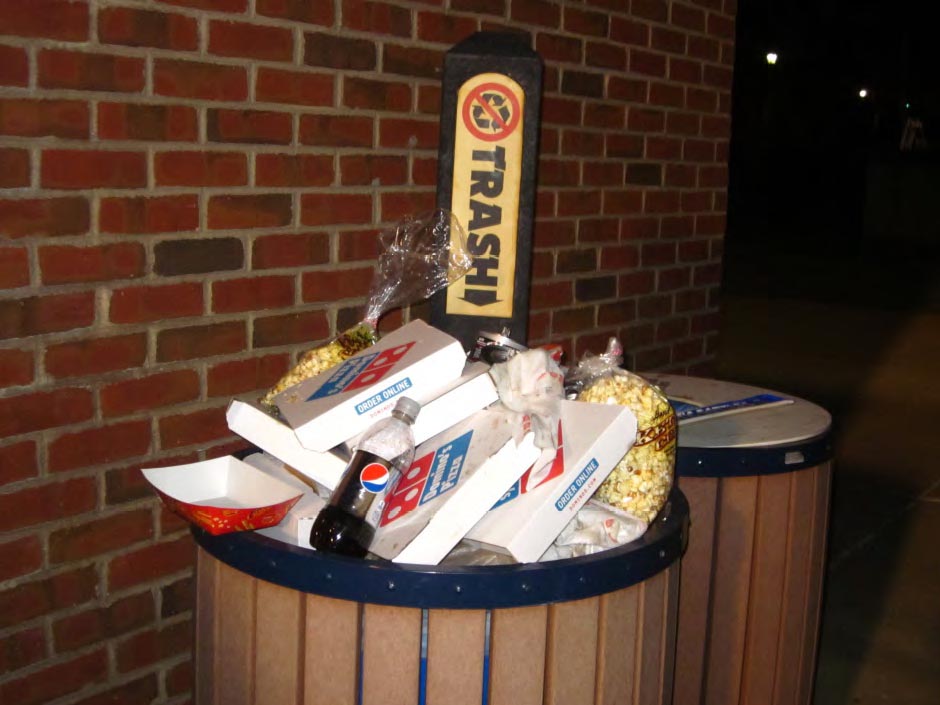Zero Waste Football Initiative: Scott Stadium
Waste Receptacle Distribution in Scott Stadium (click PDF)
Fall 2011
Team members: Michael Bugas, Maddy Partridge, Kathleen Smith, Chris Zapple
The Zero-Waste Football Game Initiative has been a combined effort over the past two semesters between student groups and community partners to revise unsustainable practices at Scott Stadium and to reduce waste produced up to 90%. The initiative was kick-started by Matt Boegner and Ashley Badesch in the spring of 2011, as a community engagement project for the Global Sustainability class. Since then, the project has continued into the fall semester of 2011 by an additional group of students collaborating with community partners, to provide Facilities Management with a comprehensive “zero-waste” plan for game days. Other universities such as Colorado University at Boulder and Ohio State University, much larger than the University of Virginia, have implemented sustainable practices during zero-waste football games, which has inspired the initiative to press forward. The wasteful practices at football games, such as not recycling bottles, using products that cannot be diverted from waste, poor signage explaining recyclable waste, and fans’ indifference about sustainable practices, all result in unnecessary consumption of resources and massive amounts of waste trucked to the landfill every Sunday. The wasteful practices observed at Scott Stadium including trash cans full of recyclable bottles by the end of the game, the Hill littered with plastics, recycling bags with openings too small to fit plastic cups, and contamination in recycling receptacles have all lead to the development of this report’s concentration.

